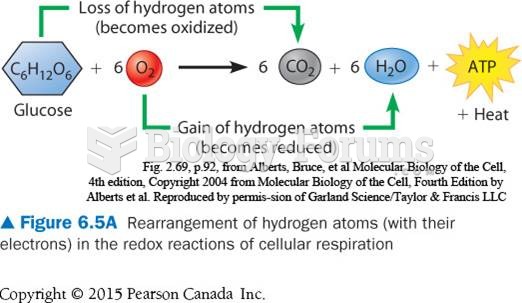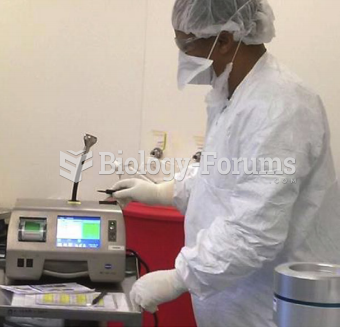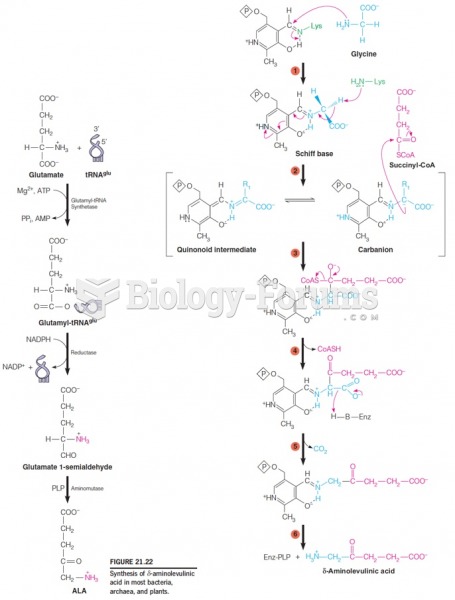|
|
|
Thyroid conditions may make getting pregnant impossible.
People who have myopia, or nearsightedness, are not able to see objects at a distance but only up close. It occurs when the cornea is either curved too steeply, the eye is too long, or both. This condition is progressive and worsens with time. More than 100 million people in the United States are nearsighted, but only 20% of those are born with the condition. Diet, eye exercise, drug therapy, and corrective lenses can all help manage nearsightedness.
Patients who have been on total parenteral nutrition for more than a few days may need to have foods gradually reintroduced to give the digestive tract time to start working again.
On average, someone in the United States has a stroke about every 40 seconds. This is about 795,000 people per year.
There are more sensory neurons in the tongue than in any other part of the body.







